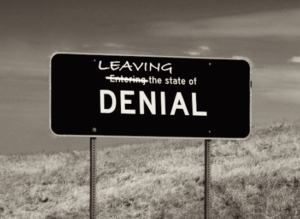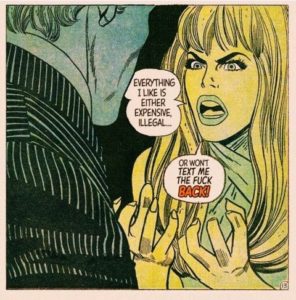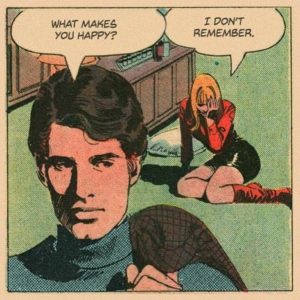 Healing is a journey. We all know this. But what many people don’t realize is that healing is an inclusive journey comprised of an aggregate collection of several smaller journeys. Not sure what I mean? Well, think of it this way, just as a single piece of music (usually) has more than one acoustic component, or any single painting can have an untold number of brushstrokes, so does the journey of healing hold within its fragility an untold number of mini-journeys.
Healing is a journey. We all know this. But what many people don’t realize is that healing is an inclusive journey comprised of an aggregate collection of several smaller journeys. Not sure what I mean? Well, think of it this way, just as a single piece of music (usually) has more than one acoustic component, or any single painting can have an untold number of brushstrokes, so does the journey of healing hold within its fragility an untold number of mini-journeys.
As with any journey, there is always a first step. For us, as survivors of narcissistic abuse, accepting our trauma as valid and that it is also now part of us, part of our psychological makeup, is the first step. This is not to say that we are broken, per se, but rather that just as all those little scars and mars that grace our skin comprise the dermal vessel which envelopes us,  so, too, do those painful parts of our past become a part of the whole that constitutes our being. They are of us, just as we are of them. Until we accept and embrace this truth, we are merely living in a state of denial, hoping what we have endured will somehow dissipate into the ether of yesterday, or the vapors of tomorrow. We hope beyond hope to wake from this slumber and find it’s all been nothing but a bad dream. Alas, it wasn’t. It was very real and very destructive. Okay. So we now accept this truth. But what happens after we genuinely embrace our nightmare actually transpired? For me, it was anger – pure, unbridled, unabashed; unapologetic anger. And if you’re like me, this is probably one of the hardest things to embrace because we have been conditioned to believe that anger is a negative emotion, that it’s somehow bad. That to feel anger, especially toward someone we love, is not healthy. Right? Well, not exactly. These are misconceptions that, many times, trap us in an internal circular loop where we find ourselves fighting ourselves between and over a conflicting sense of morality.
so, too, do those painful parts of our past become a part of the whole that constitutes our being. They are of us, just as we are of them. Until we accept and embrace this truth, we are merely living in a state of denial, hoping what we have endured will somehow dissipate into the ether of yesterday, or the vapors of tomorrow. We hope beyond hope to wake from this slumber and find it’s all been nothing but a bad dream. Alas, it wasn’t. It was very real and very destructive. Okay. So we now accept this truth. But what happens after we genuinely embrace our nightmare actually transpired? For me, it was anger – pure, unbridled, unabashed; unapologetic anger. And if you’re like me, this is probably one of the hardest things to embrace because we have been conditioned to believe that anger is a negative emotion, that it’s somehow bad. That to feel anger, especially toward someone we love, is not healthy. Right? Well, not exactly. These are misconceptions that, many times, trap us in an internal circular loop where we find ourselves fighting ourselves between and over a conflicting sense of morality.
Did your narcissist lie to you? Did they steal from you? What about infidelity? Did they cheat on you, too? If your narcissist was like my narcissist, your answer was most likely, “Yes,” to each of these questions. Now, do you see the common denominator at the core of all these questions? Betrayal. We were betrayed. And not just us, but our trust was betrayed, too. You see, that’s the thing about betrayal, it  never comes from an enemy. It is not only perfectly acceptable, but it is also very normal, even healthy, to be angry at the person who hurt us. It’s even okay to allow yourself to hate them. But as much as we might be compelled to cross that line to somehow hurt them back, albeit physically and or emotionally, do you really wish to taint your beauty with such ugly? Yes, I’ll admit it. I wanted to. But I didn’t give my pain life through action. Even though you might feel the insatiable desire to bring to life some aberration to “get them back,” trust me, after the flames from all your anger, angst, and anguish subside, you’re going to regret tarnishing your halo. Trust me on this one. And it’s going to take a lot of polishing to restore that luster, assuming you even can. Vengeance is best left to those with no vested interest, nothing to gain, and nothing to lose.
never comes from an enemy. It is not only perfectly acceptable, but it is also very normal, even healthy, to be angry at the person who hurt us. It’s even okay to allow yourself to hate them. But as much as we might be compelled to cross that line to somehow hurt them back, albeit physically and or emotionally, do you really wish to taint your beauty with such ugly? Yes, I’ll admit it. I wanted to. But I didn’t give my pain life through action. Even though you might feel the insatiable desire to bring to life some aberration to “get them back,” trust me, after the flames from all your anger, angst, and anguish subside, you’re going to regret tarnishing your halo. Trust me on this one. And it’s going to take a lot of polishing to restore that luster, assuming you even can. Vengeance is best left to those with no vested interest, nothing to gain, and nothing to lose.
Okay, so we’re angry. Furious. Perhaps even blindingly livid! Now what? Surely our narcissist can’t have really fallen out of love with us. What we shared can’t have been so inconsequential or insignificant as to have meant nothing to them. Right? Maybe if we would have spent more time with them, invested  more of ourselves, given more of our heart, they would have stayed. Maybe they would have seen how much we love them and how valuable we are. Unfortunately, loving a narcissist simply doesn’t work like that. In fact, it doesn’t work at all. However, congratulations! You have moved on to the next step. It might not seem like it, but no longer feeling angry, and, in its stead, replacing that furor with a cornucopia of “what-if’s” and “if only’s” is the next stage of our journey of healing. The thing is, here’s where a lot of narcissists find it oh so very easy to regain their control of us because now we are in a very vulnerable and helpless mental and emotional state, susceptible to their nefariously surreptitious hoovering.
more of ourselves, given more of our heart, they would have stayed. Maybe they would have seen how much we love them and how valuable we are. Unfortunately, loving a narcissist simply doesn’t work like that. In fact, it doesn’t work at all. However, congratulations! You have moved on to the next step. It might not seem like it, but no longer feeling angry, and, in its stead, replacing that furor with a cornucopia of “what-if’s” and “if only’s” is the next stage of our journey of healing. The thing is, here’s where a lot of narcissists find it oh so very easy to regain their control of us because now we are in a very vulnerable and helpless mental and emotional state, susceptible to their nefariously surreptitious hoovering.
And here’s the clincher, at this vulnerable stage, in this defenseless and exposed state, hoovering us is almost effortless. Our anger has begun to subside, we’re starting to reflect on the  time with our narcissist, perhaps even fondly reminiscing. So if they do return, if they do hoover us back in, this whole deplorable cycle resumes and will continue to do so until we can break free from their Svengali-like grip and influence. However, if they don’t return. If this was indeed the dreaded final discard phase, then we have very little choice but to pedantically plod forward. The thing is, all of these alternate scenarios of how things might have been different is a form of self-protection called bargaining, keeping the impending pain, confusion, and sadness of grieving from manifesting…for now. As much as we don’t want this grief to come to fruition, it’s only a matter of time before that quiver finds its mark. And that’s when the depression sets in.
time with our narcissist, perhaps even fondly reminiscing. So if they do return, if they do hoover us back in, this whole deplorable cycle resumes and will continue to do so until we can break free from their Svengali-like grip and influence. However, if they don’t return. If this was indeed the dreaded final discard phase, then we have very little choice but to pedantically plod forward. The thing is, all of these alternate scenarios of how things might have been different is a form of self-protection called bargaining, keeping the impending pain, confusion, and sadness of grieving from manifesting…for now. As much as we don’t want this grief to come to fruition, it’s only a matter of time before that quiver finds its mark. And that’s when the depression sets in.
Here is where so many of us, myself included, become mired and trapped by the trauma of the loss of someone and something that was quite possibly the most important  presence in our lives. How can we go on without it or them? Isn’t it funny? Not so much ha-ha funny but odd funny how, before our narcissist, we were just fine? Happy. Carefree. But after them, after their egregious egress from our life, we can’t remember that previously joyful life. What is happiness? What is life without them? I…I don’t remember. I don’t know how to be without them. Trust me – you were happy before them, you will be happy after them; even happier. Once you accept this truth, you will find your journey of healing drawing to a close with the acceptance of who and what was lost.
presence in our lives. How can we go on without it or them? Isn’t it funny? Not so much ha-ha funny but odd funny how, before our narcissist, we were just fine? Happy. Carefree. But after them, after their egregious egress from our life, we can’t remember that previously joyful life. What is happiness? What is life without them? I…I don’t remember. I don’t know how to be without them. Trust me – you were happy before them, you will be happy after them; even happier. Once you accept this truth, you will find your journey of healing drawing to a close with the acceptance of who and what was lost.
Acceptance of your situation is probably the hardest part because, in many ways, we feel we are also letting go of that last little bit of them to which we’ve clung so desperately. And, in a way, we are. But it’s not the good  things we’re letting go of. At least, it doesn’t have to be. These are your memories. You’re perfectly entitled to keep the smiles. Those we can hold on to…if we want. That was probably the hardest step for me. I felt like I was letting go of not just the bad, but those few good moments and memories my narcissist, Julia, and I had shared. You see, they weren’t all bad. In fact, just the other day, I found myself fondly reflecting on how deeply I missed talking with her. I missed her intellect and her insight. As my train of thought led me down memory lane, I soon found myself remembering how, if something was bothering one of us, but we didn’t want to burden the other person with it, we’d developed this quirky little way of getting the other person to open up without prying or forcing. It went like this. I would notice she seemed distant, that something was troubling her.
things we’re letting go of. At least, it doesn’t have to be. These are your memories. You’re perfectly entitled to keep the smiles. Those we can hold on to…if we want. That was probably the hardest step for me. I felt like I was letting go of not just the bad, but those few good moments and memories my narcissist, Julia, and I had shared. You see, they weren’t all bad. In fact, just the other day, I found myself fondly reflecting on how deeply I missed talking with her. I missed her intellect and her insight. As my train of thought led me down memory lane, I soon found myself remembering how, if something was bothering one of us, but we didn’t want to burden the other person with it, we’d developed this quirky little way of getting the other person to open up without prying or forcing. It went like this. I would notice she seemed distant, that something was troubling her.
Me: “Hey.”
Her: “Hey.” (smiling back at me)
Me: “Is something wrong?”
Her: “No.”
Me: “Are you lying?”
Her: “No.”
Me: “Hmmm. Are you lying about lying?”
Her (pausing): “Yeah…” and then the other person would share.
Not all of the time with our narcissist was bad. It definitely wasn’t all good, and it most assuredly wasn’t good enough to offset the insane magnitude of  abuse, manipulation, triangulation, dishonesty, and all the infidelities they subjected us to. But it’s okay to hold on to happy memories and whatever few good times we might have shared. Just don’t allow yourself to forget that you left for a reason, and that reason was no amount of good is ever enough to validate any of the pain and malcontent you suffered at the hands of your narcissist. So heal, smile, and move on. There’s so much better for you out there than what you had, so much joy, and so much happiness. You deserve all of that happiness and infinitely more.
abuse, manipulation, triangulation, dishonesty, and all the infidelities they subjected us to. But it’s okay to hold on to happy memories and whatever few good times we might have shared. Just don’t allow yourself to forget that you left for a reason, and that reason was no amount of good is ever enough to validate any of the pain and malcontent you suffered at the hands of your narcissist. So heal, smile, and move on. There’s so much better for you out there than what you had, so much joy, and so much happiness. You deserve all of that happiness and infinitely more.


Leave a Reply